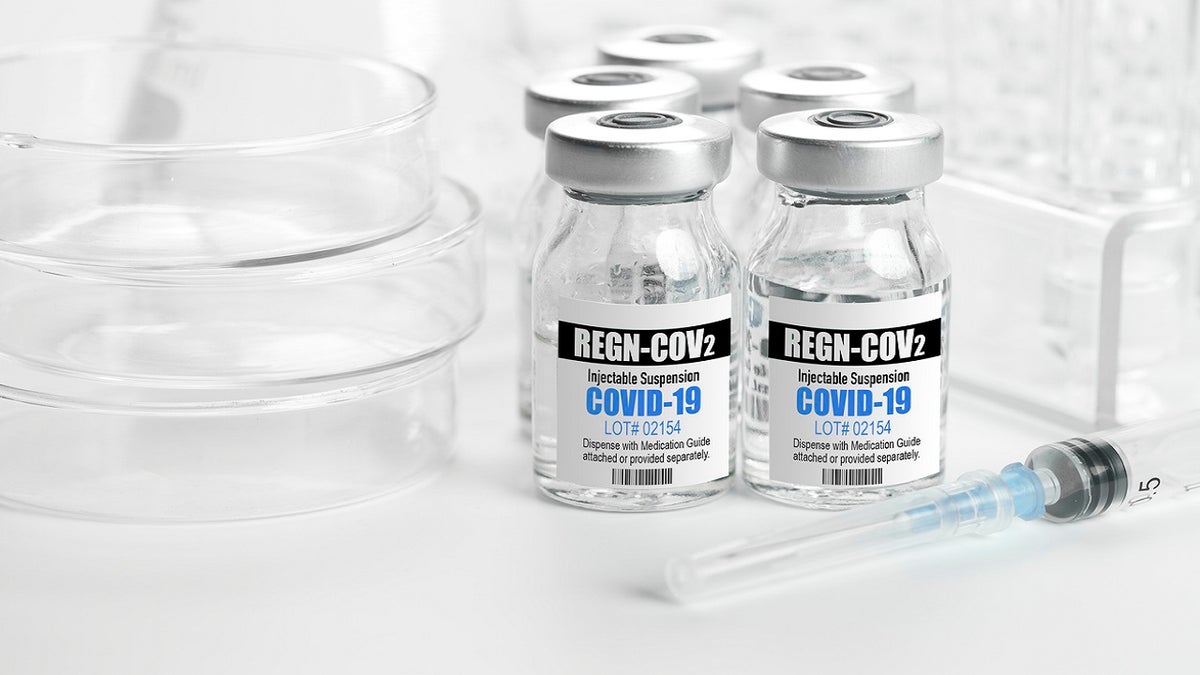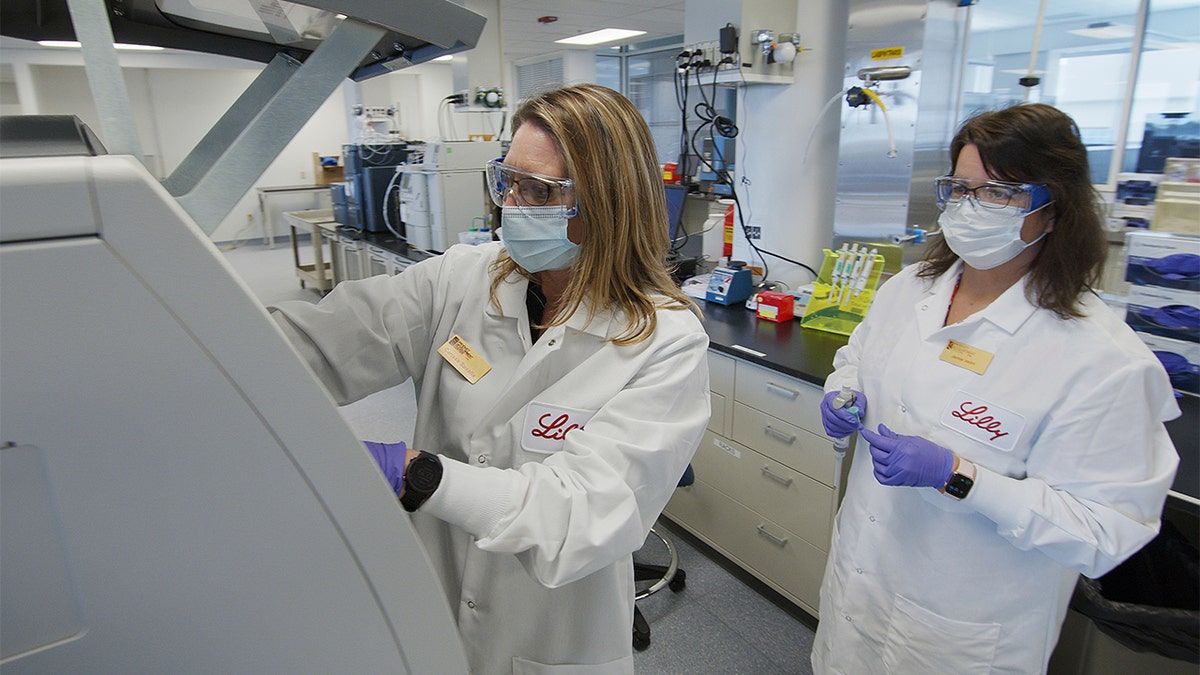Aaron Rodgers slams media after positive COVID test
‘The Five’ panel discusses Aaron Rodger’s vax saga as the Green Bay Packer QB speaks out for the first time.
Biotech giant Regeneron has claimed that its antibody cocktail reduces the risk of COVID-19 infection by nearly 82% for eight months.
The company on Monday announced the results of its clinical trials run in partnership with the National Institute of Allergy and Infectious Diseases.

iStock
"During the 8-month assessment period, there were 0 hospitalizations for COVID-19 in the REGEN-COV group and 6 in the placebo group," Regeneron said in a press release. "The fully human antibodies in REGEN-COV were developed to provide long-lasting protective effects without any artificial mutations or sequences."
No deaths occurred either.
The COVID-19 vaccines from Pfizer and Moderna tout efficacy over 90% against serious illness, and the Johnson and Johnson vaccine has around 86% efficacy against the same, according to a comparison by Yale Medical.
Dr. Myron S. Cohen, leader of the monoclonal antibody efforts for the COVID Prevention Network, hailed the positive results as a potential option for individuals "who do not respond to COVID-19 vaccines, including people who are immunocompromised."

In this May 2020 photo provided by Eli Lilly, researchers prepare cells to produce possible COVID-19 antibodies for testing in a laboratory in Indianapolis. The drug company says it has asked the U.S. government to allow emergency use of an experimental antibody therapy based on early results from a study suggesting the drug reduced symptoms, the amount of virus and hospitalizations and ER visits for patients with mild or moderate COVID-19. Eli Lilly and Company announced the partial results Wednesday, Oct. 7 in a news release; they have not yet been published or reviewed by independent scientists. Its drug is similar to one that President Donald Trump received on Friday, Oct. 2 from Regeneron Pharmaceuticals Inc. (David Morrison/Eli Lilly via AP, File)
"With infections still occurring despite widespread vaccination, the immunocompromised face an ongoing risk of encountering the virus during their daily lives," Dr. George D. Yancopoulos, president and chief scientific officer at Regeneron, said in a statement. "We intend to rapidly share these additional data with regulatory authorities to help those in most need of protection from COVID-19."
NURSE REACTS TO LOSING JOB OVER NEW YORK VACCINE MANDATE: ‘I’D PREFER NOT TO BE AN EXPERIMENT'
The REGEN-COV Antibody Cocktail mixes two monoclonal antibodies. Regeneron further claimed that the antibodies bind non-competitively to the virus’s spike protein – specifically the "receptor binding domain" – and therefore also protect against mutant viruses.
The trial started in early 2021 and allowed participants to become vaccinated if they wished once the primary efficacy period – 1 month – was complete. Vaccination rates during the remaining months of the trial were "balanced," with 35% of both the REGEN-COV and placebo groups receiving a vaccination.
HOW US TRAVEL RESTRICTIONS ARE CHANGING
The study tracked 1,683 people ages 12 to 92 who were not infected with COVID-19 and did not have antibodies. The median age was 43 years old.
The long-term results have not yet been published, but an analysis of the one-month efficacy and results ran in the in the New England Journal of Medicine in September.
CLICK HERE TO GET THE FOX NEWS APP
The cocktail has not yet been approved by the Food and Drug Administration (FDA), but is currently authorized for treatment and post-exposure regimens in certain high-risk individuals.
Regeneron submitted two different Biologics License Applications, which the FDA accepted, that will look to approve use for treatment in non-hospitalized patients and in cases of hospitalization.









































